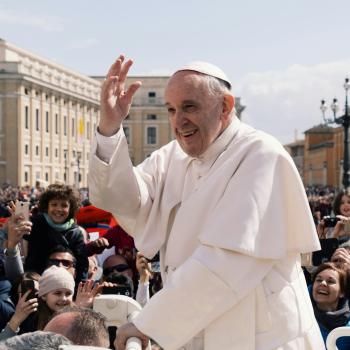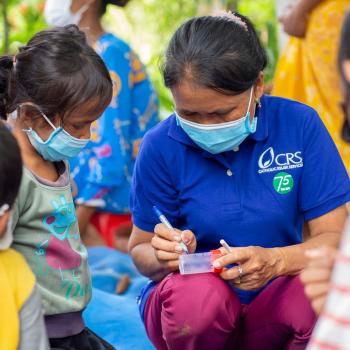In October 2021, Pope Francis opened the Synod on Synodality; a 3-year cycle of listening, discernment, and dialogue, which is set to conclude this month. As this cycle comes to a close, it opens a new chapter in South Africa. On Wednesday, 16 October 2024, Bishop Sithembele Anton Sipuka, the current President of the Southern African Catholic Bishops Conference (SACBC) was elected, unopposed as the new President of the South African Council of Churches (SACC) The election took place at the council’s triennial conference.
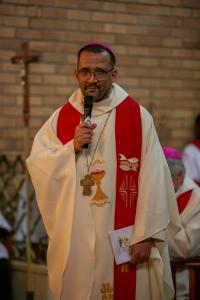
The South African Council of Churches (SACC) is South Africa’s ecumenical council, which has had a significant impact on the country’s religious, political, and social landscape. Since its inception in 1968, the SACC has amplified the prophetic voice of Christian churches to advocate for social justice, pushing churches to be actively involved in fighting any injustice in the South African society. Due to its involvement in the anti-apartheid movement and post-apartheid reconstruction, the South African Council of Churches has been a very influential faith based council in the Republic of South Africa.
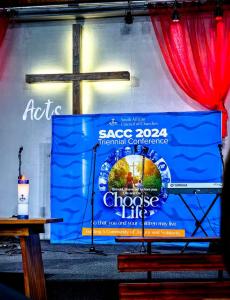
The SACC has struggled to preserve its relevance in a democratic South Africa since the end of apartheid. As the political landscape changed, some questioned the SACC’s purpose, citing the decreased necessity for churches to serve as the primary opposition to any failure in government. Nonetheless, the council has refocused its goal to address current issues such as poverty, injustice, and corruption.
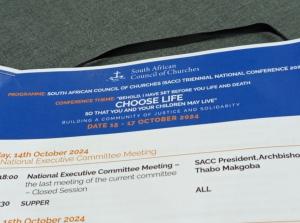
The South African Council of Churches goals align with the mission of the Catholic Church. As a member church, the Catholic Church, through its leadership, has been working with other denominations to support the SACC’s mission of promoting social justice, addressing poverty, and bringing peace. Even though the Catholic Church remains distinct in its theological practices, being affiliated to the SACC highlights the Church’s commitment to ecumenism, which emphasizes collaboration among Christians of different traditions for the greater good of society.
The election of Bishop Sipuka presents a unique opportunity to advance the ecumenical mission of the Church in South Africa. The principles of synodality—listening, dialogue, and discernment—are also key to ecumenism. By fostering a culture of dialogue within Christian churches, the synodal process can spill over into ecumenical dialogue, making the Catholic Church more open to hearing the voices and experiences of other Christian communities.
In a 2019 interview with the Southern Cross, a Catholic publication in South Africa, Bishop Sipuka was asked about his take on the priorities and challenges that South Africa has to deal with – he said,
“The Church needs to play a critical part in engaging civil servants in government and remind them of their call to serve instead of behaving like feudal lords who do what they like with impunity.
Yet, as we try to improve the material wellbeing of all South Africans, we must also stay awake to the danger of materialism and individualism.”
Bishop Sithembele is a member of the Catholic clergy who is known to be determined, reliable, and practical. One prominent characteristic of his is persistence. When he believes in something, he will work tirelessly to see it through. He is someone who is not easily deterred or discouraged from his mission. Bishop Sithembele is not driven by fleeting passion but by a deep, internal sense of purpose. He approaches social justice with practicality. He sees the world not as it should be, but as it is, and works from that foundation to create realistic, achievable goals. His pragmatic mindset allows him to break down complex social issues into manageable parts, making his action plan strategic and effective. His grounded nature allows him to see through lofty promises and rhetoric; he is then able to focus on actions that will lead to measurable change.
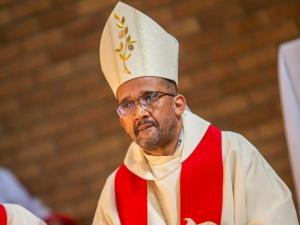
Moreover, Bishop Sipuka’s resourceful approach ensures that he is able to maximize the impact of the resources at his disposal. This practicality makes him an effective leader within social justice movements, as he inspires others to take concrete steps toward change rather than getting lost in abstract ideals. Bishop Sithembele is someone who’s able to build strong relationships with other people and create a network of trust and support; this promotes solidarity, an essential component of successful social justice work. He values collaboration and is willing to support others, making him a dependable team player in any collective effort.
In the current South Africa, this is the kind of leader who is needed to advance the principles of Synod on Synodality.
The Synod on Synodality and ecumenism in South Africa are two interconnected movements that have the potential to shape the future of the country in a significant way. Through the synodal process, the Catholic Church has the opportunity to listen to the voices of its members, discern the path forward, and engage in deeper dialogue with other Christian denominations. By embracing both ecumenism and synodality the Church can become a strong forte for unity, justice, and reconciliation in South Africa; thus contributing to the healing of a nation that still suffers from divisions caused by apartheid. Synod on Synodality will not only be a platform for internal renewal for the Catholic Church but it will also be a catalyst for broader Christian collaboration and social transformation in South Africa.





